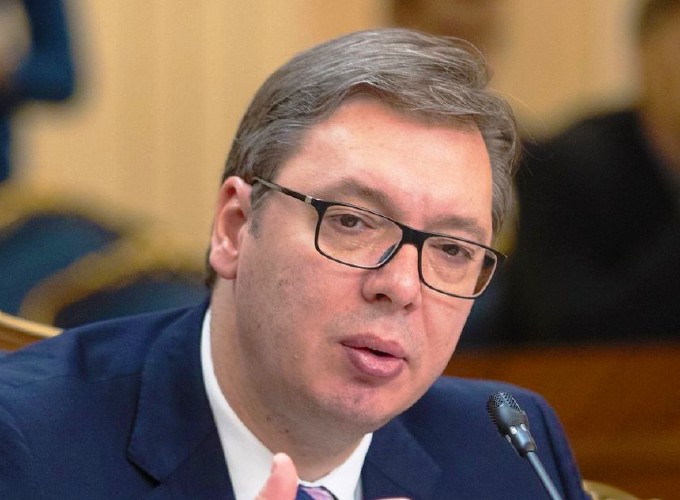Blog post published by presidential-power.com
A snap general election was held in Serbia on March 16th. President Nikolic’s Serbian Progressive Party obtained a strong parliament majority and its current leader, Aleksandar Vucic, is sure to secure the prime minister position. The snap election could also affect the intra-executive relation between the president and the new prime minister, due to the latter’s extensive authority over the government and ruling party.
According to the results reported by the National Electoral Commission based on nearly all votes counted, four electoral lists passed the 5% threshold necessary to get into parliament:
- SNS (Serbian Progressive Party) – led coalition: 48.34% of the vote and 158 seats
- SPS (Socialist Party of Serbia) – led coalition: 13.15% of the vote and 44 seats
- DS (Democratic Party) – 6.04% of the vote and 19 seats
- New Democratic Party – 5.71% of the vote and 18 seats
Three parties of ethnic minorities will also be represented in the parliament:
- Alliance of Vojvodina Hungarians (SVM) – 2.11% of the vote and 6 seats
- Party of Democratic Action (SDA) of Sandzak – 0.95% of the vote and 3 seats
- Party for Democratic Action-Riza Halimi – 0.68 % of the vote and 2 seats
The snap election was called by the Progressive Party, less than two years after the last general election held in July 2012. The SNS-led coalition topped the polls in 2012 and obtained 73 seats in the 250-seat parliament. However, the prime minister position went to Ivica Dacic, the leader of the Socialist Party. With 44 seats in the parliament, SPS emerged as the kingmaker of the election, as plans for a Grand Coalition between the Progressives and Boris Tadic’s Democratic Party holding 67 seats in the parliament fell through. What followed was a year of political speculation about the timing of the next snap election that would allow the SNS to improve its parliamentary support and to secure the prime minister position.
In the meantime, Aleksandar Vucic, the SNS deputy PM and Ivica Dacic’s main challenger for the prime ministership, strengthened his position within the cabinet and his party. Due to a very active anti-corruption campaign, which drew wide public support and weakened his political opponents, Vucic emerged as the most powerful and popular minister in the Serbian cabinet. The Progressives were also able to capitalize on the government’s popularity, which increased as a result of the successful conclusion of the Serbia-Kosovo agreement, the organisation of local elections in Northern Kosovo in November 2013, and the official start of EU accession talks in January 2014.
There are concerns that Aleksandar Vucic, who does not necessarily have to share power in a coalition government, might use his party’s outright parliamentary majority to strengthen his personal hold over the society. Moreover, his tight grip over the Progressive Party could also reduce the president’s influence over the political system.
Although the presidency enjoys few constitutional powers, Serbian presidents have maintained a relatively high profile in national politics. One reason for their influence over the political system is related to the authority they have preserved over their former parties.
For example, under the leadership of Boris Tadic, the Democratic Party succeeded to win both presidential and parliamentary elections in 2004 and returned to power following the 2007 and 2008 general elections. In 2012, Tadic resigned as head of state ten months before the end of his term so that concurrent presidential and parliamentary elections would allow the Democrats to capitalize on his coattails. His defeat in the presidential run-off by Tomislav Nikolić, the SNS candidate, played an important role in the Socialist Party’s decision to drop their coalition with the Democrats in favour of a coalition with Nikolic’s Progressives.
Tomislav Nikolic contested the 2012 presidential contest as a de facto leader of the Progressive Party, which broke away from the Serbian Radical Party in 2008 under his leadership. However, he is unlikely to preserve his authority over the party in the face of Aleksandar Vucic, who succeeded him as party president. Vucic ran unopposed for the leadership position in September 2012. To strengthen his legitimacy as a de facto party leader, he was unanimously reconfirmed as party president at a special conference convened in January 2014, where the decision to bring forward the general election was also taken.
Although President Nikolic expressed his support for early elections and endorsed Vucic as future prime minister, they are known as long-lasting political rivals. To prevent the emergence of party divisions and limit presidential influence on intra-party politics, Vucic also used the 2014 party convention to remove the president’s supporters from the party leadership.
Overall, we can expect the results of the 2014 snap election to have an impact on intra-executive politics and reduce the president’s role to its strict constitutional responsibilities. However, the actual relation between the president and the prime minister will depend on the type of cabinet that Aleksandar Vucic will form and on whether the political rivalry between the two political actors will translate into an increased level of presidential activism and/or intra-executive conflict.


